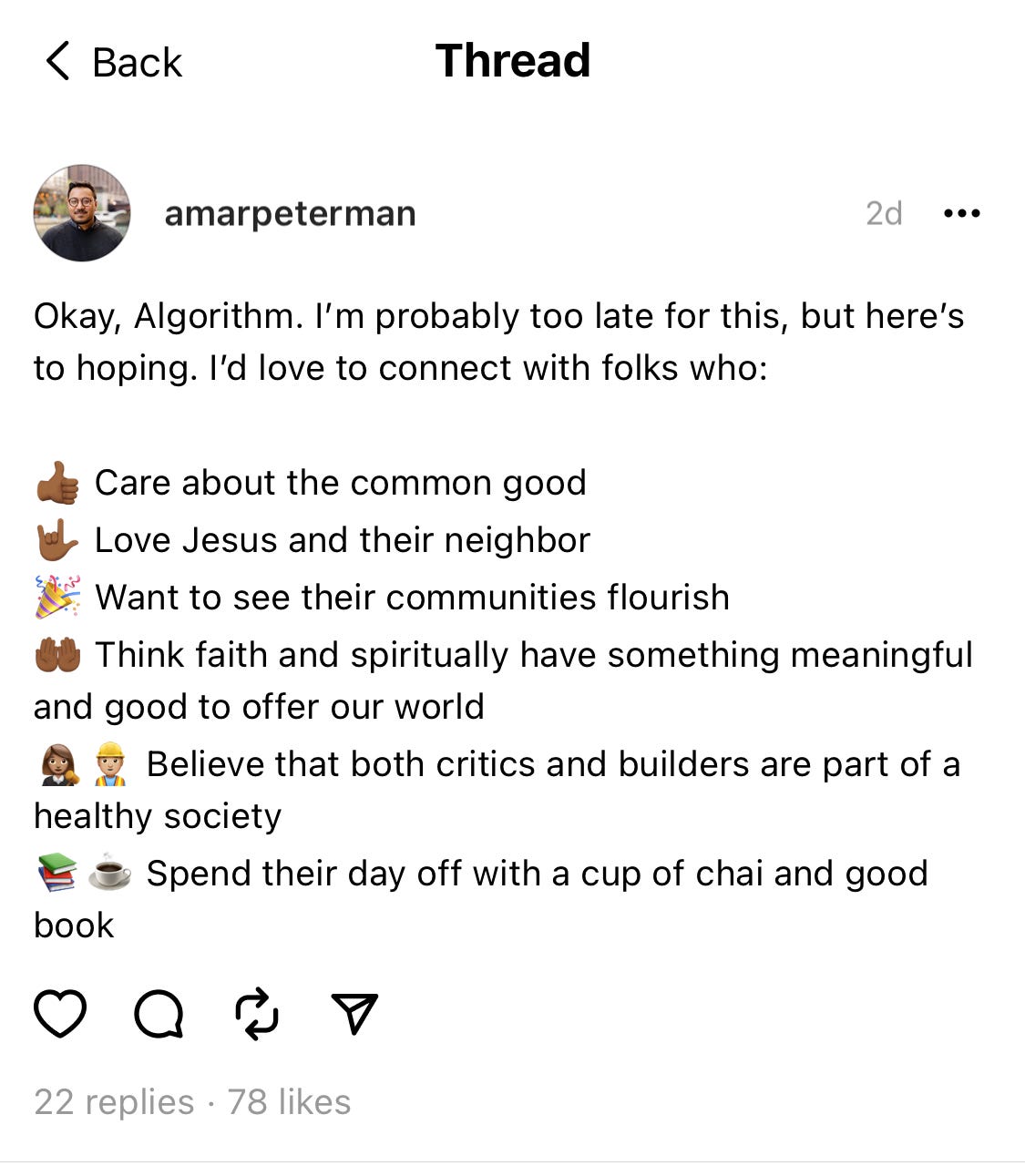Just over three months ago Meta launched their newest media platform: Threads. Like other Instagram and Twitter (X) users, I was interested in how this platform would attempt to intervene and resolve some of the glaring issues that exist on social media: misinformation, trolls, tribalism, unabashed and anonymous racism, overly-promoted explicit content, toxic leadership, and the like.
What, if anything, would make Threads any different?
As I’ve begun testing the platform, I have noticed, broadly, a happier audience. Whereas Twitter has become increasingly divisive—turning into a pseudo news outlet—Threads has become a space where artists and poets share their work, journalists pose questions to a less hostile audience, businesses engage clientele, and more. Users are more eager to “like” and follow. (This is a whole topic in itself—we have an unlimited “resource” of likes and follows, yet often dole them out so sparingly, myself included).
Within the last week, I noticed new trend on Threads: users have been addressing the “Algorithm.” Like “Hey Siri” or “Alexa,” users have asked the “Algorithm” to connect them with folks who hold similar interests (which they then list below).
I gave it a try:
Within minutes, users began engaging through likes, comments, and follows. Given what I had seen from similar posts, this was somewhat expected. However, what I did not anticipate was the same folks engaging on Threads finding me on other apps and even subscribing to this newsletter.
This month I also finished revisions on a forthcoming essay for the Fetzer Institute on planting gardens and the hopeful majority. In it, I argue that we must foster spaces of belonging by digging our hands into the soil and cultivating the seedbed of social change. Such labor, I propose, anticipates communities filled with neighbors who hope for places of belonging and meaningful connection.
In a moment where violence, division, and hatred permeate on a local, national, global, digital scale, it is easy—even tempting—to assume that disagreement and hostility are now two sides of the same coin. It often can feel that we’ve irrevocably arrived at a place where “you’re wrong” necessitates “you’re evil.”
However, across my work, I’ve found a shared discontentment with this standard.
Threads is, by no means, an ultimate measure of this. Yet, the resonating and active response to these attributes—“care about the common good…want to see their communities flourish…believe both critics and builders are part of a healthy society”—was a much-welcomed surprise.
Most importantly, though, this interaction was a reminder that, when offered the invitation, even strangers are eager to name and live into spaces of shared interest and belonging. Whether it is in-person or online, when we finally feel as though we’ve found some sort of commonality in a world marked by disconnection, we grasp on to it.
I am left wondering—dreaming of—what kind of neighborhoods and communities might exist if this invitation towards shared dwelling, mutual flourishing, and collective belonging was extended again and again. And, I wonder, if such a community could exist, what good it could bring to our world.
Reading:
Chris Wiman, “Writing in the Sand: The Poetry of Doubt and Faith” (Plough)
Elaine Scarry, On Beauty and Being Just (Princeton University Press, 1999).
Kait Dugan, “Introducing: God Here and Now” (God Here & Now)
Watching:
Midnight Mass (Netflix)
Us (Netflix)






Couldn't agree more. I love what Threads is becoming (or maybe already has become) for so many. Everyone needs to know they belong and Threads is providing that space in a beautiful, authentic way.